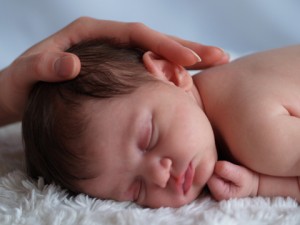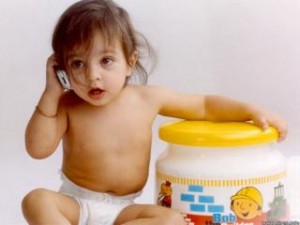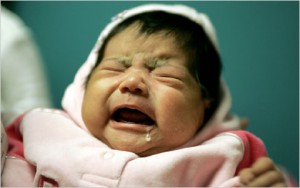Language Development in Babies
As you watch your newborn grow, you will undoubtedly make a note of every milestone of development. While every child develops at a different rate, your baby may lift his head up when he is a month old, roll over at six months, and begin teething at four to seven months. Likewise, language and speech development is a gradual process. Don’t worry if your baby is a little off the typical development schedule.
Language development begins with a response to sounds and other stimuli. By the time your baby is three months old, he may begin to appear to recognize your voice. When you speak to him, you may notice that he smiles or becomes quieter. He’ll also learn to cry when he has various needs, like food or a diaper change.
When your baby is six months old, he’ll likely be making gurgling sounds and simple repetitive sounds, like “ba ba.” He’ll respond to music and also to the changes in a family member’s voice. When he hears a sound coming from a certain direction, he’ll likely look toward it.
When your child is a year old, he’ll likely understand the meaning of the word “no” (even if he doesn’t want to obey it). He should understand other simple instructions and he may try to imitate words or familiar sounds. Some children will also begin to say some simple words, like “mama.”
By the time your child is 18 months old, he should be able to interpret and follow simple directions, particularly when you use gestures with them. For example, say “Drink your milk” while holding up the milk carton. When you name an object, a person, or a body part, your child should be able to point to it. This means that he is developing receptive language skills – that is, he understands and is able to process what you’re saying. For example, if you say “arm,” he should point to his arm.
Between 18 months to two years, children should begin to form very simple, short sentences. For example, he may say “Want milk” or “No juice.” Typically, a child 18 months old will be able to say eight to ten words, and a child two years old will be able to say about 50 words (although he’ll understand many more than this). Children two years old and older should begin learning and speaking new words every month, and they will begin to use pronouns. For example, they’ll say “My teddy bear.”
This is a general milestone schedule. If your child is a little bit behind, that doesn’t necessarily mean that he has a speech disorder. However, if you notice that your child is lagging significantly behind this schedule bring him to his pediatrician and discuss your concerns.
For all children, continue to encourage speech and language development by singing songs with him, reading to him, and talking to him frequently.





